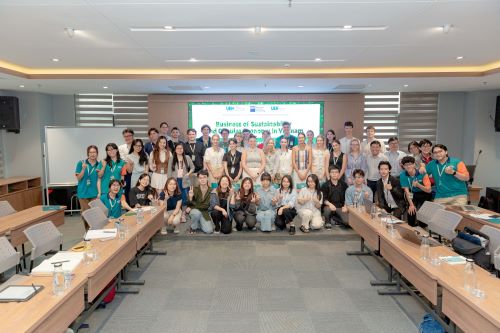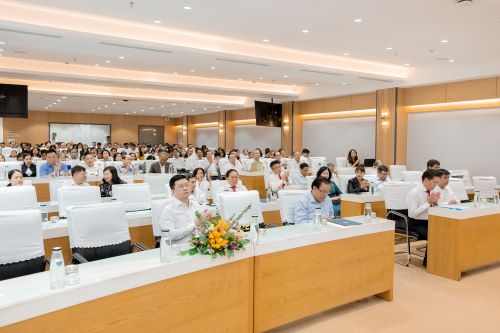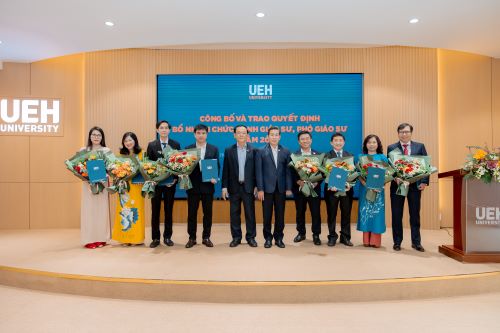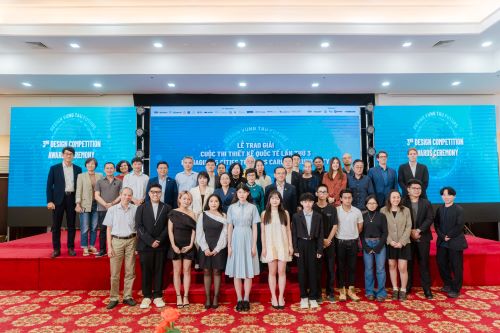CELGS Periodic Academic Event: “Effectiveness of electric vehicle subsidies in China: A three-dimensional panel study”
On February 3, 2023, UEH College of Economics, Law and Government (CELG) continued to hold CELG Seminar at B1.1001 with the theme "Effectiveness of electric vehicle subsidies in China: A three-dimensional panel study". The speaker is Professor Paul Bruke - Vice Chancellor, Crawford School of Public Policy, Australian National University. This is the first academic session of 2023, successfully continuing the series of activities in 2022.
The meeting was attended by Assoc.Prof.Dr. Pham Khanh Nam - Vice Head of UEH College of Economics, Law and Government; Assoc.Prof.Dr. Vo Tat Thang - Director of Agricultural and Health Policy Research Institute (HAPRI); Dr. Tran My Minh Chau - Southeast Asia Institute of Environmental Economics; Dr. Nguyen Quang - School of Economics; Dr. Nguyen Luu Bao Doan - School of Economics; and Ms. Truong Thi Ai Nhi - Institute for Circular Economy Development (ICED), Vietnam National University, Ho Chi Minh City; with fellow students currently pursuing doctoral programs at the university.
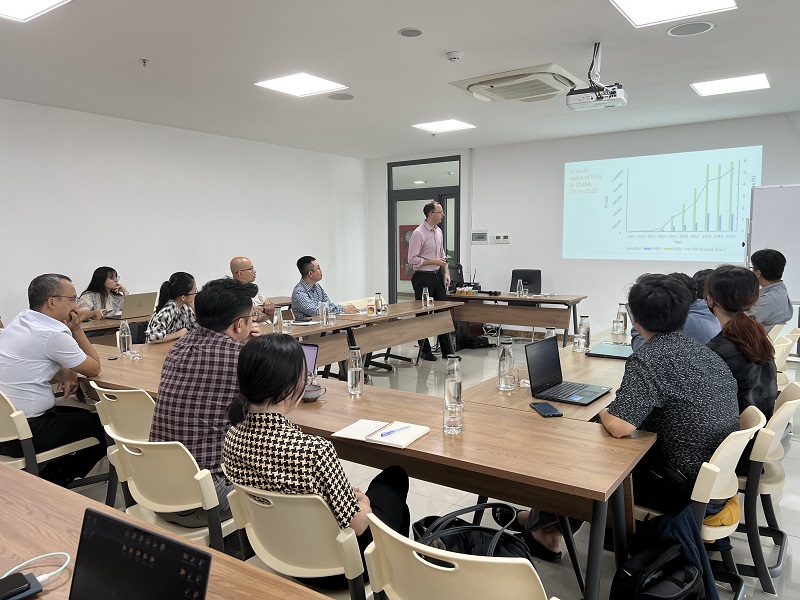
Overview of the academic session
At the event, Professor Paul Bruke - Vice-Chancellor, Crawford School of Public Policy, Australian National University, presented a study titled "Effectiveness of electric vehicle subsidies in China: A three-dimensional panel study". China is pioneering many countries in registering electric vehicles in its country; The subsidy policy for purchasing electric vehicles at the local as well as national level is an important incentive policy in the goal of zero-emission transportation. Benefit rates vary by an electric driving range, city, and time. The subsidy on each vehicle purchased is typically around 10-20% of the sale price. Vehicles with longer travel distances will receive more subsidies. This study uses a three-dimensional data set (range, city, month) to estimate the impact of domestic electric vehicle purchase subsidies on user registration in 316 cities in China from January 2016 to December 2019. The author uses the cancellation of local subsidies by the central government as an instrumental variable and a fixed effect model. Research shows that China's purchase subsidies have largely contributed to encouraging domestic EV consumption but have discouraged the consumption of imported EVs. A higher consumer perception of a subsidy leads to a larger proportional effect. The authors calculate the subsidy at the marginal cost per ton of CO2 emission reduction. The authors discuss benefits other than emission reductions, such as the emergence of a new clean technology sector that will be competitive enough without subsidies and what it means for Vietnam.
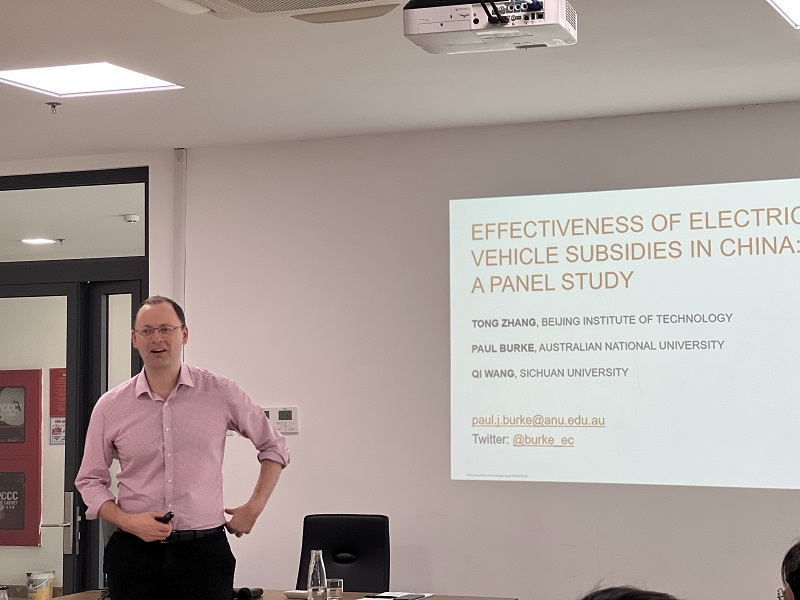
Professor Paul Bruke presented the research paper
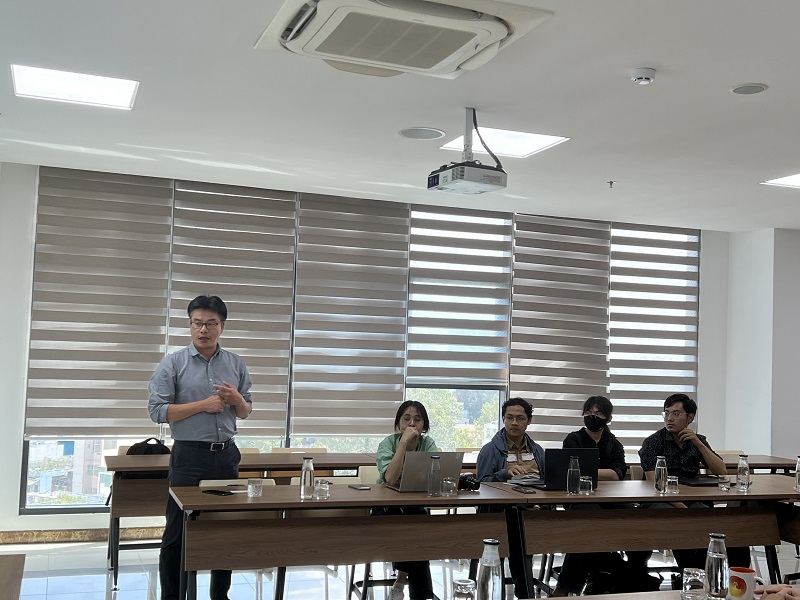
Exchange of Assoc.Prof.Dr. Pham Khanh Nam on the research
Professor Paul Bruke's presentation attracted the interest and comments from the lecturers and fellows who attended to continue to improve the research work. The first CELG seminar in 2023 was successfully held in the spirit of positive academic exchange. We look forward to receiving interest and participation from researchers in the following periods.
News, photos: CELG General Department

